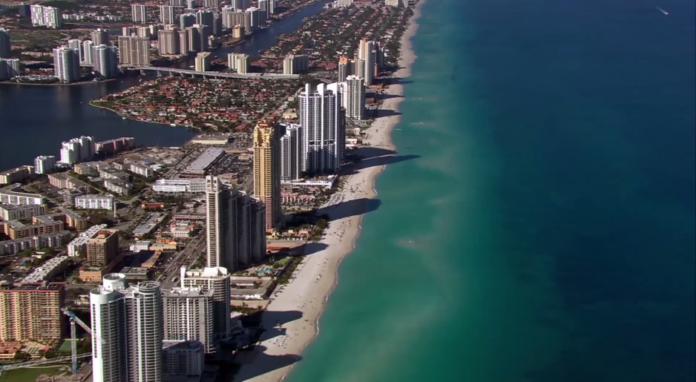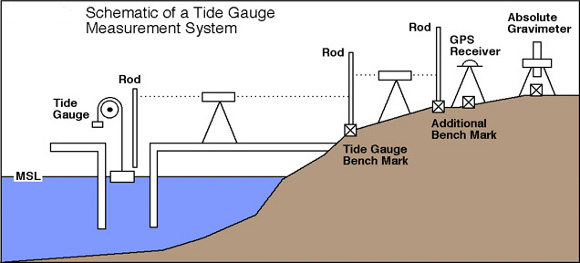
New research has indicated that the global sea level is rising much quicker than scientists previously believed. The study, conducted by a team of climate researchers at the University of Tasmania, Australia was recently published in Nature Climate Change and sheds some light on the mysteries of sea levels.
With the collaboration of many observations and data collection, over the 20th century, sea levels have risen at an alarmingly faster rate than ever before. This contradicts previous satellite data dating back to 1993, which appeared to show sea level rise accelerating in the 1990s, but slowing slightly over the past decade. In a press statement, Christopher Watson, the study’s lead author said “That slowing has puzzled scientists because it coincides with an increase in water entering our oceans from Greenland and West Antarctica”.
In order to make sense of the science behind the slowing rise of the sea level, despite the increase of water entering the ocean, the study set out to determine whether other factors, such as changes in the height of the earth’s land surface, may had impacted the previous satellite data.
Many factors, such as earthquakes or sediment settling can cause sporadic distribution of the tide gauge and therefore cause gaps within the data. Therefore to account for these disturbances, Watson and his team used GPS stations for their tide gauge experiment. In areas where there no GPS stations, computer modelling was used to estimate the movement and location of tide gauges.
From the data collected, researchers discovered that the satellite data collected between 1993 and 1999 had exaggerated the sea level rise. The original data had suggested the during that six-year period the global sea level was rising at 3.2 millimetres (roughly .12 inches) every year. However the University of Tasmania recalibrated data revealed that sea levels had likely risen between 2.6 to 2.9 mm (roughly .1 to .11 inches) every year. This incorrect data had thus created the impression, that over the last decade, that the rise of the sea level had slowed, when in fact it was accelerating at a rate of between 0.041 and 0.058mm (.001 to .002 inches) per year.
“We see acceleration, and what I find striking about that is the fact that it’s consistent with the projections of sea level rise published by the IPCC,” Watson told the Guardian.
Sea levels will continue to increase if we carry on producing the greenhouse gases which are ultimately changing the physical nature of the planet. Extreme sea level events will become more frequent; mass erosion and depletion of land, and coastal ecosystems will deplete and diminish. Sea levels will continue to be tracked and observed, allowing early warnings and detection of any rise that differs from current projections. However, if the greenhouse gases issue continues to go unresolved sea levels are expected to rise up to 98cm by 2100.
You want to discuss a certain topic with likeminded people or you want to organize a local protest or you have an idea for a project that can help people in need in your local community or all around the world? Join our forum! www.anonboards.com
You want to support Anonymous Independent & Investigative News? Please, follow us on Twitter: Follow @AnonymousNewsHQ






yeah, and i have a horse that flys
do you mean flies..? R-tard
there is loads of evidence that points at the fact that we are ruining the planet. dont be a douche
It’s not easy being definitely wrong, I’m sure, but did you really think publicly making an ass of yourself would help?
Maybe try having a nice cry about how painfully clear it is that you and the rest of the global warming deniers are wrong, instead. Maybe rub one out on your Glenn Beck poster, I don’t care. Regardless of what you end up doing about the burden of your incorrectness, please just stop dragging the rest of us down with your anti-science bullshit.
What if… instead of the oceans rising, the land is actually sinking?